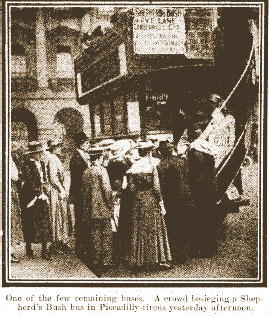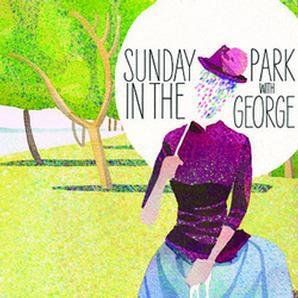London bus drivers strike |
In May 1917, Richmond was affected by the London-wide strike by bus drivers.
Unrest had been growing as the war dragged on and wages failed to keep pace with the rising costs of food and basic necessities.
In February 1915 in Scotland, Clydeside armament workers went out for higher pay. Such strikes were seen as a huge threat to the war effort and steps were taken to prevent them. In July of that year it was declared that all industrial disputes across Britain must be referred to the Board of Trade before any strike action could be taken. But this did not stop 200,000 miners in South wales walking out on 15 July.
There were also concerns that, while the millions of women who volunteered to take the place of men in the workplace were being paid a fraction of the wages of men, men would be pushed out of their jobs. Women workers on buses and trams across the South East of England would later strike for equal pay in 1918.
From the Government’s perspective, the 1917 February Revolution in Russia was a new cause for alarm.
The bus workers had walked out on 13 May after their employer’s refusal (the London General Omnibus Company) to recognise their Union and honour previous promises of war bonus pay. Of nearly 2000 London buses, only 20 were reported to have run during the strike. Newspapers recorded that 10,000 ‘busmen and women conductors’ went on strike. Services were resumed while negotiations took place and the strike was ended on 18 May.
Public protests and the loss of popular support for the war were key reasons the stalemate conflict was eventually brought to an end. A strike by 1 million industrial workers in Germany in 1918 encouraged German authorities to begin negotiating peace.

The caption underneath the picture showing a scene from the 1918 bus strike, reads: ‘One of the few remaining buses. A crowd besieging a Shepherd’s Bush bus n Piccadilly Circus yesterday afternoon.’
Share this:- More





